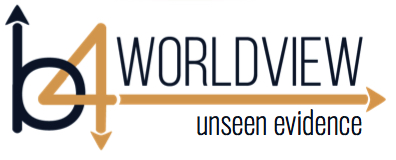
Key Thought for this session:
“Without a compass, the journey is futile.”
Let's see how this understanding of emotions can help us explore truth about Column A and Column B sources of satisfaction.
Since Column A joy is affected by how circumstances meet our expectations, then to feel good from Column A joy you must be successful at giving others what they want in exchange for what you want. Whereas, in Column B joy you must simply receive what you are given by someone who has the power and resources to give you what your soul needs. Feeling thankful replaces the need to feel that things are fair. If Column A and Column B are competing assumptions, then we ask which source is most likely to produce positive emotions – or the better outcome?
So, which column is more likely to produce joy? If I am a Column A person, I can be happy if I do something that results in getting what I want. But research on human behavior has found that this exchange cannot possibly always be satisfied. This is because once the need is met, your expectation becomes this new level of fulfillment and since your expectations are no longer being exceeded, the positive emotion subsides. There is a limit to the ability to continue to EXCEED your rising expectations, so sooner or later, it becomes impossible to produce that positive emotion. Also, when I do something to get something and do not get it, then I am subject to unhappiness. So, Column A joy has several problems with guaranteeing that we feel happy. Column B joy, that satisfaction that comes from receiving favor that I do not deserve, results in thanksgiving. Thanksgiving never burns out. It’s limitless. It can grow as I experience more and more unmerited favor because the favor has no strings attached, no demands that I must perform at someone else’s level of expectation – no anxiety, no fear, no uncertainty.
Let’s look at some of the other needs of the soul and see how this same dynamic applies.
Freedom. When you have Column A freedom, you use your independence for your benefit. Maybe you want to use your freedom to make yourself happy – to get more joy. Two things can happen regarding the Column A relationship between freedom and joy. First, in exercising your power to do what you want, you can negatively impact someone else’s joy. When this happens, you can feel rejected by the other person, which negatively affects your need to belong, or you can feel a sense of guilt, which negatively affects your joy. Second, since your freedom came by what you have done in the past, you are always sensitive to the fact that you must continue doing it or your freedom may be lost. This concern about keeping your freedom creates anxiety, which negatively affects joy, and also instills doubt, which makes hope less satisfied. I know that may sound a little like mumbo-jumbo, but the point is that the Column A approach to satisfying needs is a little like “herding cats,” as some people say. When we get one thing settled we upset another. We can’t seem to get them all nailed down at the same time and even if we do, we are not sure we can keep it that way. While earning what we need SEEMS rational, that’s the Column A problem.
In Column B, you are free to use your ability to do what is right because your other needs are satisfied by unmerited favor. Since your actions are not self-serving, not based on exchange, you therefore feel more confident that your actions are appropriate, and you have no reason to feel guilt or shame. You are not concerned you will become less accepted because your acceptance is from the gift giver, not based on what you do or how other members of the group feel about you. Finally, since your freedom is a gift that will not be taken back by the gift giver, you have no anxiety or despair about your freedom. You have hope that is certain, not a wish.
We could go on and on with examples, but let’s finish this discussion with one last illustration of why Column B is more likely to satisfy us than Column A. When you were a kid, were you ever the last one selected on a team because you were considered the worst performer? If not, you probably know a kid who was.
The last person chosen was given the least important position to play so the team’s performance would not suffer. How satisfying is it to be in this position? Now suppose you or some other less capable kid was selected first or second. The one choosing teams for some reason favored you not because of what you could do, but because the captain just wanted you on the team. Not only were you selected, you were given a role on the team the captain knew fit you well. Wouldn’t this be more satisfying?
These are simple illustrations of what it’s like to have your needs satisfied by Column B rather than Column A. This doesn’t prove Column B is true north, but it does show how Column A and Column B are competing assumptions about the soul. Both have rational explanations, but some approaches, like social exchange, can be rational in some ways, but not rational in every way. Even if you feel that Column B is just a fantasy and cannot exist, please do not dismiss the arguments about its comparative benefit to Column A. We mentioned earlier in the course that we have examples of Column B all around us, and hopefully it will make good sense before we are through.